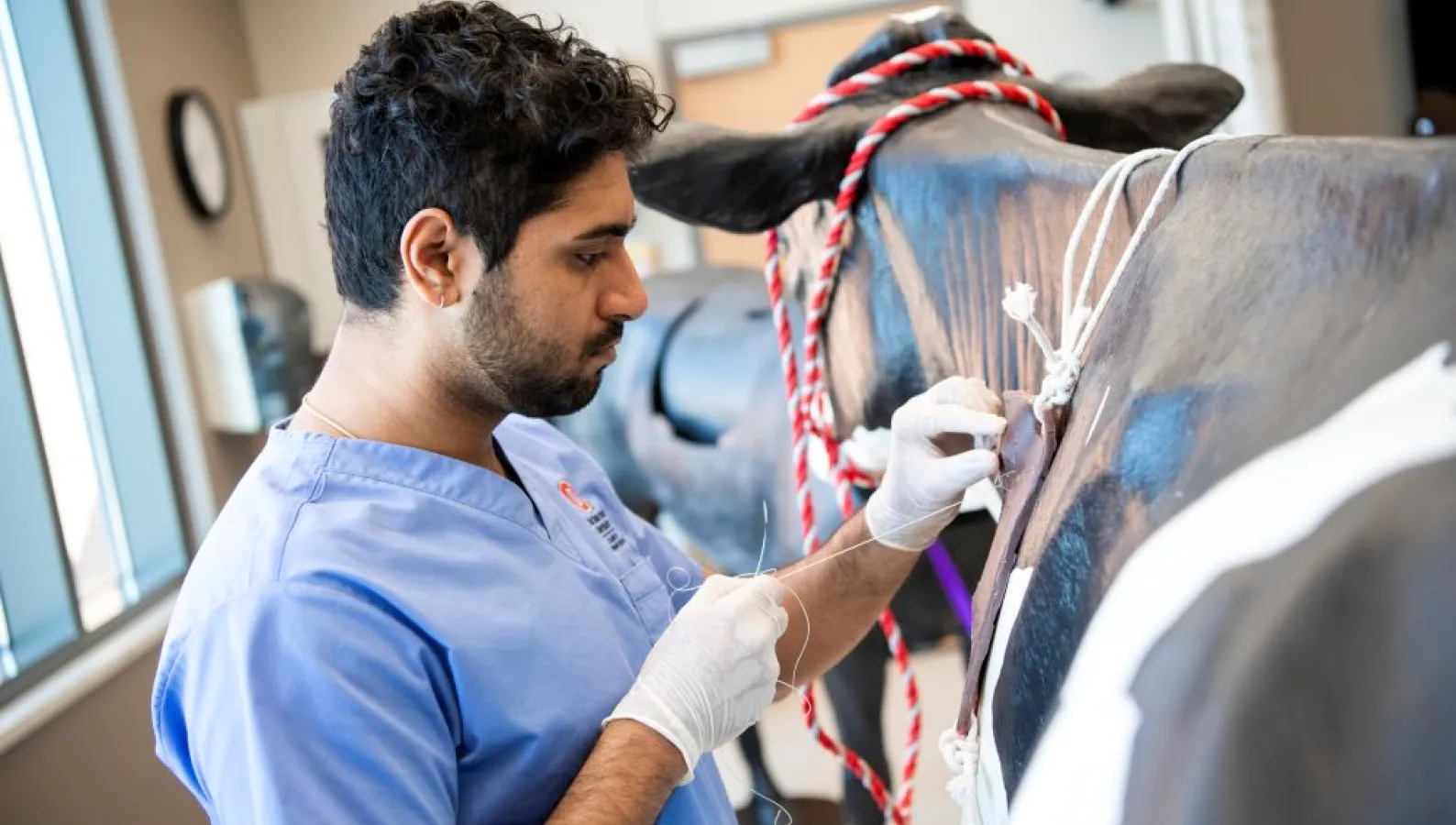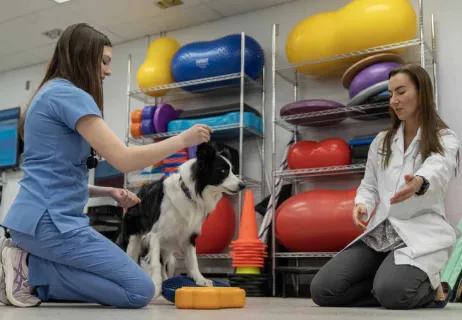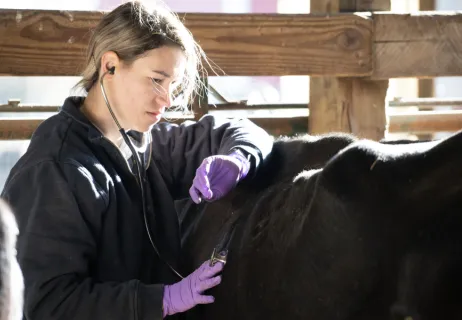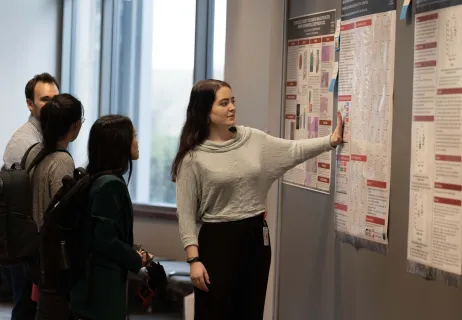See all of our academic programs
The College of Veterinary Medicine at The Ohio State University offers a comprehensive range of educational and training opportunities for veterinary students. In addition to the four-year Doctor of Veterinary Medicine (DVM) degree program, the college provides a Comparative Biomedical Sciences Graduate Program (MS and PhD) degree, a Veterinary Public Health degree, numerous residency and internship programs in various veterinary specialties, externships, and a Veterinary Scholar Summer Research Program.
Prospective DVM Students
Becoming a Buckeye veterinarian
To become a licensed veterinarian, you must complete a Doctor of Veterinary Medicine degree, a rigorous four-year professional program. Vet school applicants typically have a bachelor's degree. Becoming a part of Ohio State's College of Veterinary Medicine is a highly competitive journey.
With just 165 spots available annually and an overwhelming number of applicants, our admissions process is meticulously selective and designed to identify the brightest and most passionate future veterinarians.
The Office of Professional Success
The Office of Professional Success is committed to assisting veterinary medicine students, alumni, and employers in all areas of career management and development. Through personal career advising, professional development lectures, career events, employer outreach and professional networking opportunities the Office of Professional Success helps students reach their career goals.
New outcomes-based curriculum
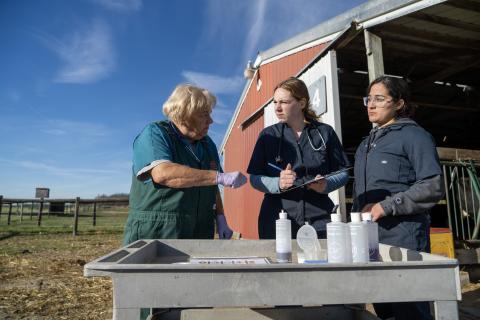
The college recently completed a curriculum redesign based on the American Association of Veterinary Medical Colleges (AAVMC) competency-based veterinary education (CBVE) framework. Ohio State’s College of Veterinary Medicine is at the forefront of this new educational approach ensuring that our program is delivering extraordinary and value-driven education that prepares graduates to lead the field, advance science and achieve personal fulfillment.
A significant component within the new curriculum is providing opportunities for students beginning the first week of their first year to have regular and recurring hands-on experiences outside the classroom, giving them a broader understanding of their future careers and preparing them to be confident and competent practice-ready veterinarians. The hands-on experiences provided allow students to apply their classroom knowledge to real-life situations, making them more equipped to handle the challenges of their future careers. Our new curriculum reflects the college’s commitment to advancing education and student success and moving us closer to our ambition to Be The Model® comprehensive college of veterinary medicine in the world.
